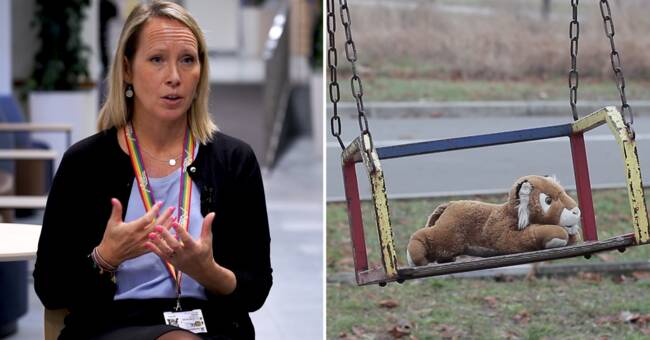When a child in Sweden is killed due to violence, in three out of four cases a parent is the perpetrator.
But the cases are few, about five a year, and the motives as well as the parents' living situation differ.
The convicted offenders also do not belong to any particular social class or ethnic group.
- What we do know is that parents often have a background of severe mental illness.
It can be deep depression or severe delusions, says Moa Mannheimer, investigator at the National Board of Health and Welfare.
Revenge unusual
Parents who kill their children are less criminally charged and women make up almost half of the criminal suspects, the research shows.
Not infrequently, they try to take their own lives in connection with the deed.
- What distinguishes this type of crime is that there may be an altruistic motive.
The parent may have delusions that you are actually saving your child by taking its life, says Henrik Lysell who researched child murder, so-called filicide, at Karolinska Institutet.
Revenge motives occur but make up a small proportion.
- There is a small group where you can see that the killing took place as revenge against a parent who wants to separate, but it is more unusual, says Moa Mannheimer.
Hard to find the vulnerable
According to lex Bobby, all child murders have been investigated by the National Board of Health and Welfare since 2008. The investigations show that in 40 per cent of the cases, reports of concern about the children had been received by the social services before they were killed.
Only 50 percent of the reports had led to an investigation.
The fact that society does not succeed in catching the children before they are exposed can have several reasons, believes Moa Mannheimer.
- A large group of the children who are killed have not been subjected to violence before.
Therefore, it is unfortunately not so easy to stop the murders by finding the abused children.
What the environment may see may be about a depression or a custody dispute.
But these are problems that affect many, and that very rarely lead to someone being killed.
Must be captured in healthcare
What is required is that society's safety net becomes more fine-meshed, both she and Henrik Lysell believe.
- Just as in psychiatry you ask about suicide, you should ask if the person has thoughts about using violence against their children.
Talking more openly about these thoughts would perhaps prevent some, or at least some, cases, says Henrik Lysell.

